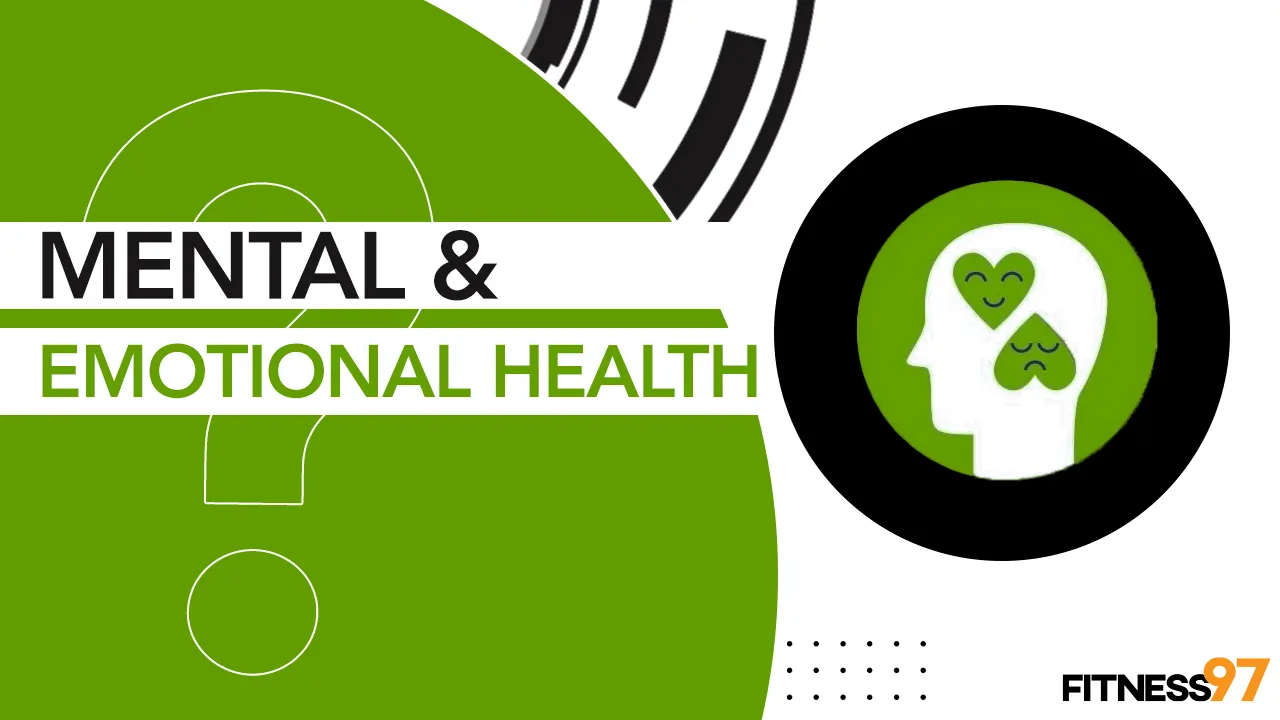Did you ever wonder how mental and emotional health differ from each other? While these terms are often used as substitutes for one another, they each represent different facets of our health.
Both these elements of health shape our interactions with the world, our relationships with others, and our perceptions of ourselves. However, distinguishing between these two can sometimes be complicated, primarily due to their overlapping areas and the relationship between them.
Considering the importance, we bring you this article which is going to be all about knowing what is the difference between mental and emotional health and how these two impacts our lives. So let’s continue to read and see what it holds!
Understanding Mental Health
Mental health primarily deals with our cognitive functioning – a broad term that includes our abilities to think, reason, and remember. It plays a foundational role in our daily life as it drives our understanding of the world, the choices we make, and how we overcome life’s challenges.
Our mental health influences our perception of reality, shapes our decision-making capabilities, and even dictates our responses to external stimuli. It empowers us to absorb new information, create and retain memories, and analyze and solve problems.
Different Types of Mental Health
There are various facets of mental health, including behavioral health, psychological health, and intellectual health. While these types may seem to overlap, each plays a unique role in our overall mental health, contributing to our individual identities. These play crucial roles in our daily interactions and choices, shaping who we are as individuals.
Understanding Emotional Health
On the other hand, emotional health revolves around our capacity to express and handle emotions. It influences how we deal with feelings, both positive and negative, and how we react to emotional challenges.
Emotional health is reflected in our ability to stay in control when situations become stressful, our capacity to bounce back from adversity, and our readiness to embrace a variety of feelings without allowing them to dictate our actions.
Different Types of Emotional Health
Emotional health spans our happiness, self-esteem, resilience, and ability to form and maintain relationships. Each of these components, in combination, shapes our emotional health, influencing how we perceive, express, and manage our emotions. It fundamentally determines our reactions to life’s ups and downs.
The Difference between Mental Health and Emotional Health
Even though we see mental and emotional health have an interconnected nature, there are some clear differences that you should be aware of. Let’s talk in detail about that.
1: Common Misconceptions
A common misconception is that mental and emotional health are interchangeable terms. However, it’s not like that.
Mental health centers on cognitive functions like information processing, decision-making, and problem-solving. It shapes how we perceive the world, form thoughts, and make judgments.
In contrast, emotional health pertains to our capacity to articulate, comprehend, and effectively manage our emotions. It covers how we respond to emotional experiences, interact with others, and navigate social situations.
2: Emotional Intelligence
Emotional intelligence, a component of emotional health, entails the identification, comprehension, and control of our own emotions as well as those of others. This ability affects various skills such as empathy, self-control, motivation, and interpersonal abilities.
While mental health might dictate the logical response to a situation, emotional intelligence can guide us in understanding the emotional implications of our decisions.
For instance, if faced with a problem, our mental health might help us weigh the pros and cons of each option. At the same time, our emotional intelligence would allow us to consider the emotional impact of each choice on ourselves and others involved.
The Impact of Mental and Emotional Health on Personal Life
Our mental and emotional health significantly affects our personal lives, shaping our self-concept, our relationships, and our ability to deal with life’s highs and lows.
Mental Health: Positive mental health assists us in clear thinking, making sensible decisions, and efficiently solving problems. It enables us to learn from experiences, adapt to changes, and pursue personal growth.
Emotional Health: Maintaining solid emotional health enables us to comprehend and control our feelings. This capacity allows us to establish and uphold healthy relationships, manage stress, and express our emotions suitably. For example, if we encounter personal setbacks, robust emotional health would empower us to manage feelings of disappointment and plan methods to bounce back.
The Impact of Mental and Emotional Health on Social Life
Mental and emotional health also profoundly impact our social lives, influencing our interpersonal relationships, community interactions, and social stability.
Mental Health: Our mental health can determine our perception and response to social scenarios. It can affect our ability to understand social cues, adapt to different social environments, and contribute to community dynamics. For example, strong mental health could allow us to contribute constructively to group projects or community initiatives.
Emotional Health: Emotional health affects our capacity to form and maintain social connections. It dictates our empathy towards others, our reaction to social pressures, and our ability to handle interpersonal conflicts.
Conclusion
Understanding the difference between mental and emotional health is crucial for overall well-being. While they are distinct aspects, they interlink and impact each other significantly. By recognizing their unique roles and taking steps to maintain balance, we can lead a healthier, more fulfilling life.













